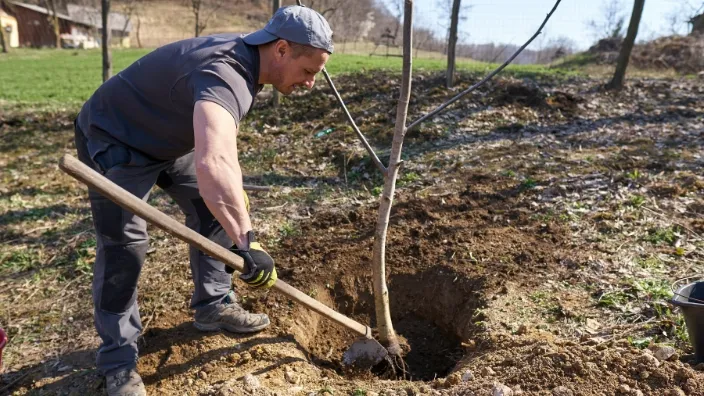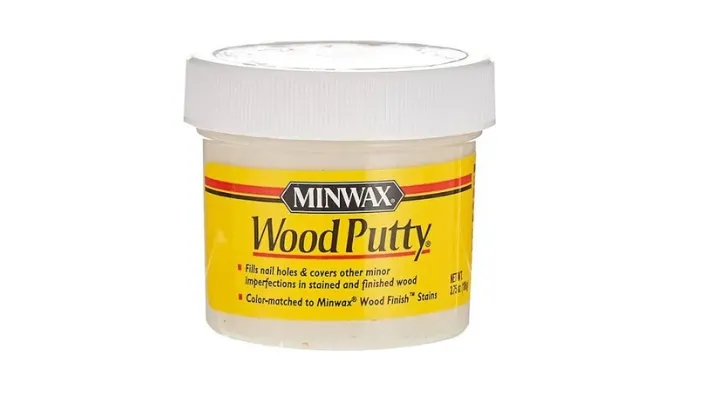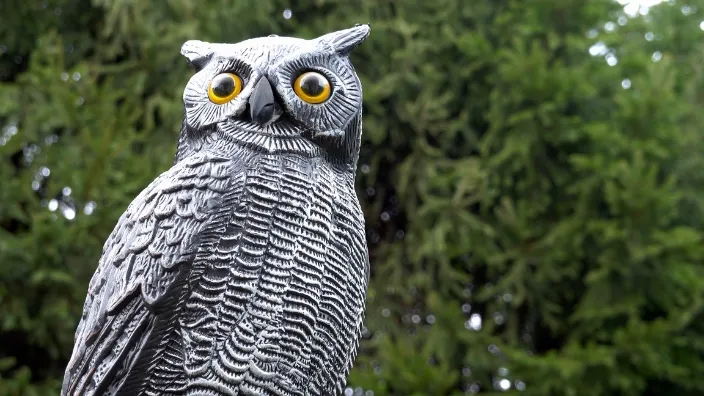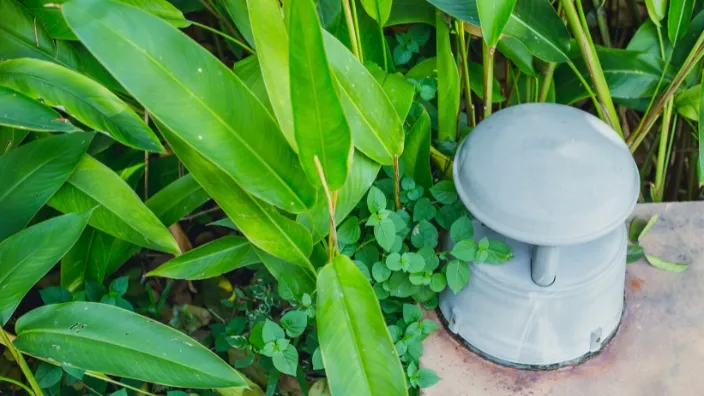Woodpecker is a beautiful bird mostly found in North America, Asia and Europe. This bird has a long pointed and strong beak with which it dig holes in woods producing unpleasant sound for multiple purposes. The holes and the drumming loud sounds are the indicators of the Woodpecker's presence.
It does so to; search out food, shelter its food, make a cavity as a nest or signal other birds for mating. People often search for ways how to get rid of woodpeckers. The sound as well as the holes is considered destructive problems for the mind and home’s exterior. If you are experiencing the same issue here are the ways, methods and techniques of getting rid of woodpeckers.
Table of Contents
- What is Woodpecker?
- Signs and Symptoms of Woodpecker Problems
- Reasons for Pecking Holes by Woodpeckers
- Methods to Get Rid of Woodpeckers
- Replace Rotten Wood by New One
- Replace Old Dead Trees with New Ones
- Eliminate Insect Infestation
- Close Pecked Holes with Woody Putty
- Locate the Pinwheel or Wind Chime
- Install Reflective Materials
- Fix a Fake Bird
- Install a Bird Feeder
- Place Mesh Bird Netting
- Create Loud Noise
- Repellent Smell For Woodpeckers
- Getting Rid of Woodpeckers by Siding
- Is it Harmful to Get Rid of Woodpeckers
- Conclusion
- Frequently Asked Questions
What is Woodpecker?
Woodpecker is a type of beautiful bird which through its long and strong beak digs holes in wood. It has developed its beak so strong that it can even dig holes in trees. The question is why it does so. It digs holes for four major reasons, searches out food, shelters its food, makes a cavity as a nest or signals other birds for mating.
The problem with this beautiful creature is that it makes unpleasant sounds and damages not only trees but also the exterior wood of houses. It is reported that in New York out of the damaged houses 33% of damages are done only by woodpeckers.
Signs and Symptoms of Woodpecker Problems
The only signs and symptoms of woodpecker problems are the bored holes in trees in your home, wooden walls and wooden ceilings. They bore only two types of holes based on the diameters, these holes either are the size of the beak if bored for the search of insects and for food storage or a little bit big if made for the purpose of nesting. The second biggest sign is the sound Woodpeckers create, they make loud unpleasant noises.
Reasons for Pecking Holes by Woodpeckers
There are four major reasons why they bore holes in wood which are shortly just mentioned in the introductory section. Now it will be discussed in more detail:
a). For Storing Food
The first reason for digging a hole in wood is the storage of food, woodpeckers store and collect food and for safe storage, they dig holes in either dead trees or house exteriors. The size of holes pecked for storing food are less in diameter, these are only of the size equal to acorn size. They collect acorns in abundance and throw them in these holes to preserve.
b). For Eating Insects
The second reason for pecking holes is also the food but not to preserve, this time for searching out food to eat. The rotten wood of houses has carpenter termites, bees, ants, beetle larvae and other things. These birds are insectivores and love eating small insects, so they peck holes and eat the insects. If your house has any rotten wood you are more likely to experience the holes and sounds of woodpeckers. It can also be said that the rotten wood and dead trees give life to these birds.
c). For Creating Nest Cavity
The third reason for boring holes is the seeking of shelter for their selves and for baby birds. They do so in the months of April and May which is their breeding season. If you have noticed the diameter of the hole, it is relatively large and deep on account of the bird’s size. Mostly they seek shelter in the wood of houses instead of dead trees.
d). For Communication
The fourth and last reason for digging holes is communication. They do not necessarily dig holes for communication but want to make louder noises to signal out other birds. They mostly do so during their mating season, they signal out their partner for mating while marking the place where they can come.
Methods to Get Rid of Woodpeckers
The epicentre of our article is how to get rid of Woodpeckers, here are the best ways that are not harmful to the Woodpeckers. The harmful ways are the usage of some chemicals and other techniques that can physically harm them and endanger their lives.
So always avoid harmful ways of deterrence in order to save their precious lives as well, for they add much to our biodiversity. These birds are also called migrated birds and according to law one has no right to kill, harm or catch these birds.
Replace Rotten Wood by New One
If your house has any rotten wood you are more likely to experience the holes and sounds of woodpeckers. The rotten wood of houses has carpenter termites, bees, ants, beetle larvae and other things.
These birds are insectivores and love eating small insects, so they peck holes and eat the insects. In order to get rid of Woodpeckers replace the rotten wood by installing a new one that is free of insects and carpenter bees. It will completely block the purpose and ways of Woodpeckers coming.
Replace Old Dead Trees with New Ones

Not only rotten wood but the dead and old trees also provide food and shelter for Woodpeckers. If you have any dead and old trees at your home, it must have carpenter termites, bees, ants, beetle larvae and other things. The birds will either seek shelter for their selves and food or will search out insects. So it is recommended to replace this tree with a new one. The tree will serve no purpose for Woodpeckers.
Eliminate Insect Infestation
The woodpeckers will definitely visit your house for insects and will damage every corner of your house. If there are insects there are high chances of Woodpeckers’ holes. The direct relation can be broken down by inspecting the insects and eliminating all of them from your house.
Removing insects means getting rid of Woodpeckers completely. For such purpose hire professionals or Pest Control Company to visit your house with all their equipment. They will exterminate the roots of insects and will destroy the hanging out spot of Woodpeckers.
Close Pecked Holes with Woody Putty

If your house has holes pecked by the birds, inspect the damages and find ways of plugging them. One thing to notice carefully is to check properly if the holes have insects or birds inside, if there is anything inside you are again at risk. Filling out the holes will increase the chances of insects growing and damaging more your house.
If the holes have nothing, take Woody Putty and close all the pecked holes in your house. Closing holes will close the chances for Woodpeckers to come.
Locate the Pinwheel or Wind Chime
By installing pinwheels or wind chimes you can also stop Woodpeckers from pecking your house. The technique used in this is betraying the birds to avoid coming. The wind chimes or pinwheels will produce noise and the noise will alert the birds that there are predators and going there is not free of threat.
So they change their mind along with changing their paths and never think of coming back to that side. This is the safest and easiest way, install as many pinwheels or wind chimes as you can and enjoy your house free of holes and their cause.
Install Reflective Materials
The next safest technique to deter Woodpeckers is the installation of reflective materials like aluminium foil, mirrors or any other shiny thing. These are also known as visual deterrents. The best spot to install these materials should be near the nest of Woodpeckers, they will see their reflections in the mirrors and will have the fear in mind.
So automatically the birds will fly out of fear and will leave your property. The recommended or targeted spots for the installation of reflective materials are the nearby places of damage and also the places near their nest. This will lower the risk of pecking holes in your house.
Fix a Fake Bird

This is also the wisest method of all, showing the fake predator and scaring away the birds. People often buy a fake bird like an owl, which has scary eyes and while seeing this fake on your house boundary wall the Woodpecker birds alert their selves and think of never coming back. You can have these fake birds online and also at the shops, remember that choose the one with reflective eyes which seems more real.
Install a Bird Feeder
The Woodpeckers often bore holes in the wood for food, if you provide this food easily on the ground they would not peck the wood. Make a cage-like feeder and fill it with food that is loved by the birds near your wood. Move the cage day by day and finally keep it at a distance from your home and the bird will automatically train with that. By doing so the birds will avoid visiting your place, and you will no longer observe the holes and unpleasant sounds.
Place Mesh Bird Netting
It is a kind of net which will protect your home from holes and damages. The bird will no longer reach your wall if you set it properly. Keep in mind that if the birds target the tree of your boundary walls install the net there, if your walls are the favourite place for them then install the net there as well. Be very careful while netting and leave no opening for the birds to reach the wood.
Create Loud Noise

Creating noise will also help you protect your home from pecking holes and noise. These are also known as auditory deterrents. This technique is very easy and affordable and can be done without extra effort.
All you have to clap your hands, beat some utensils or throw any noise-making object. You can also get the recorded tapes containing the noise to compel Woodpecker to leave your home. You can install the speakers everywhere in your home.
Repellent Smell For Woodpeckers
The smell deterrents work best as well to keep the birds away from your home. The repellent smell should be harmless, we have only to stop the birds not threatening their life. The smell repellent can be found in pouches that release grape seed extract and irritate Woodpeckers with its fragrance.
Getting Rid of Woodpeckers by Siding
Siding is the extra protective cover for the walls and roofs, is installed with care and acts as a shield. Siding is done for the purpose of stopping Woodpeckers from pecking holes and causing damage. If you are living in a territory having a mammoth of Woodpeckers, it is necessary for you to do siding to your home.
Is it Harmful to Get Rid of Woodpeckers
Although the birds are destructive to your home and are enemies of your sleep, solace and silence. But after all, these are beautiful creatures and no one has the right to harm them, kill them and physically make them disabled. It is written in the law of wildlife that the migrated birds cannot be harmed. So before performing any protective measure keep in mind the drawbacks of the technique.
They dig holes for four major reasons, search out food, shelter their food, make a cavity as a nest or signal other birds for mating. They have no intentions of making any financial loss to you and your home. There are some ways to avoid this while stopping the birds from pecking holes and making noise. Using any strong repellent that is very sticky or makes the birds dizzy like Tanglefoot Pest Control, Roost-No-More, etc. may harm the birds and even can kill them.
The smell repellent should also be light and only serve the irritating purpose, not the killing purpose. Do not use any electric shock that can cause fatal threats. One more important thing is taking care while filling up the holes, make sure there are no baby birds inside the hole.
Conclusion
To have a quick overview, the Woodpecker is a beautiful bird mostly found in North America, Asia and Europe. This bird has a long pointed and strong beak with which it dig holes in woods producing unpleasant sound for multiple purposes.
It does so to; search out food, shelter its food, make a cavity as a nest or signal other birds for mating. To deal with the issue out the ways how to get rid of woodpeckers, there are some ways that address the handling of these birds. Replace rotten wood and dead trees with new ones, eliminate insect infestation, close the pecked holes with woody putty, and install Pinwheel or Wind Chime, reflective materials, a bird feeder and mesh bird netting.
Frequently Asked Questions
What are the easiest and affordable ways of stopping Woodpeckers from pecking holes?
The easiest and most affordable technique to deter Woodpeckers is the installation of reflective materials like aluminium foil, mirrors or any other shiny thing. These are also known as visual deterrents. So automatically the birds will fly out of fear and will leave your property. Windsocks, pinwheels and helium balloons also lower the risk of pecking holes in your house.
How do I permanently get rid of woodpeckers?
You can permanently get rid of Woodpeckers in the following ways. Replace rotten wood and dead trees with new ones, eliminate insect infestation, close the pecked holes with woody putty, and install Pinwheel or Wind Chime, reflective materials, a bird feeder and mesh bird netting.
What smell do woodpeckers hate?
The smell deterrent that works best to keep the birds away from your home is the fragrance of grape seed extract. The repellent smell should be harmless, we have only to stop the birds not threatening their life. The smell repellent can be found in pouches that release grape seed extract and irritate Woodpeckers with its fragrance.
What does it mean when woodpeckers peck at your house?
The signs and symptoms of woodpecker problems are bored holes in trees in your home, wooden walls and wooden ceilings. They peck only two types of holes based on the diameters, these holes either are the size of the beak if bored for the search of insects and for food storage or a little bit big if made for the purpose of nesting. The second biggest sign is the sound Woodpeckers create, they make loud unpleasant noises.
What can I do about woodpecker holes in my house?
You can easily stop the Woodpeckers from pecking holes in your home and from making noise that disturbs you. Replace rotten wood and dead trees with new ones, eliminate insect infestation, close the pecked holes with woody putty, and install Pinwheel or Wind Chime, reflective materials, a bird feeder and mesh bird netting.


















